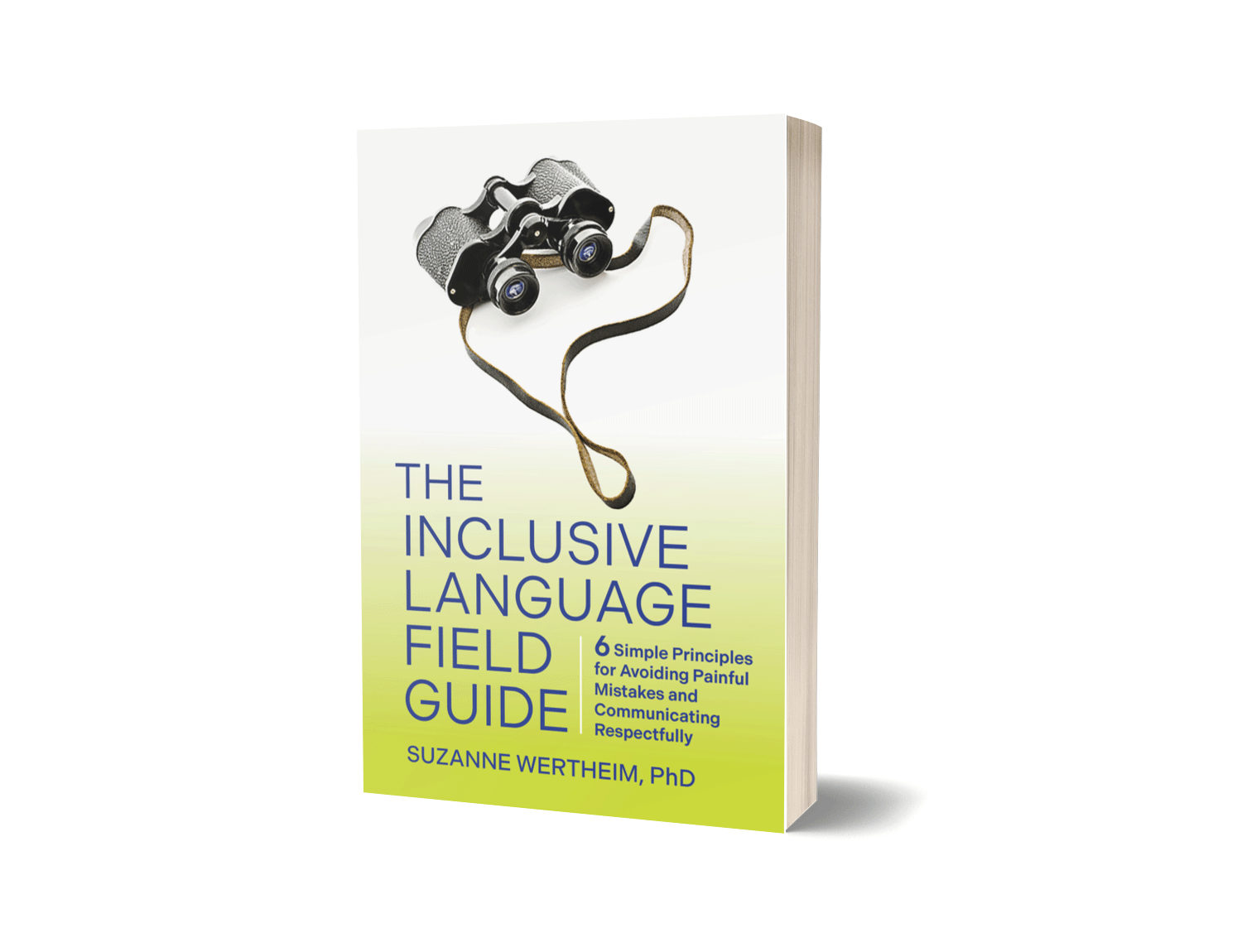“Suzanne Wertheim’s clear and straightforward book goes beyond flat dos and don’ts. Instead, she gives us the keys to why and how words and phrases we may have grown up using can wound and exclude people we want to welcome.”
Just a single word can have a profound effect on the world around you. Inclusive language can make people feel seen, respected, and valued, while problematic language can make people feel disrespected, misjudged, or erased.
It can be hard to figure out the right thing to say. Words that used to be acceptable can now get you strongly criticized. Language can feel like a minefield, and many people are afraid of making embarrassing mistakes. Or getting “cancelled.” Of sounding outdated or out of touch. Or not being as respectful and welcoming as they want to be.
But it’s not as complicated as it might seem. Linguistic anthropologist Suzanne Wertheim offers 6 easy-to-understand principles to guide all kinds of communication with all kinds of people:
Reflect reality
Show respect
Draw people in
Incorporate other perspectives
Prevent erasure
Recognize pain points.
For each principle, the book offers five “quick wins” and three exercises that let you start practicing new inclusive language skills right away. It’s designed to improve language in all kinds of business relationships, like between a company and client, manager and report, recruiter and potential employee, or salesperson and prospect. It also guides you to improved language in more personal relationships, like between co-workers, friends, family members, and romantic partners.
You’ll read about hot topics like why and how to use pronouns like they/them, how to avoid problematic language like “Oriental” and “master bedroom,” and why “you guys” is not as inclusive as many people think.
By the end of the book, you’ll have not only a new set of inclusive language skills, but also a foundational toolkit that lets you evaluate what is and isn’t inclusive language on your own.
_________________________________________________________
Endorsements
“The ultimate roadmap to welcoming, including, and honoring everyone we encounter with the power of inclusive language. So, stop walking on eggshells around colleagues, ramp up your ILQ (inclusive language intelligence), and start drawing people in instead of making them feel erased.”
“Businesses want to be more inclusive, and language is key. This book provides a step-by-step guide anyone can use to harness the power of language and communicate more respectfully.”
- Jonah Berger, Wharton Professor and Bestselling Author of Contagious, The Catalyst, and Magic Words
“This is much more than a book on inclusive language. This is a people-leader book. I honestly believe this should be required reading for anyone who has the responsibility of holding authority over others.”
- Cynthia Overton, PhD, Senior Director of Tech Workplace Initiatives, Kapor Center
“A new, important, and genuinely useful resource for human resources professionals. Because your words at work will always matter, it’s never too late to strengthen your relationships with colleagues and clients through inclusive language. This is a must-read!”
- Brandon Wheatley, Employment Law Attorney and HR Leader
“Suzanne Wertheim’s clear and straightforward book goes beyond flat dos and don’ts. Instead, she gives us the keys to why and how words and phrases we may have grown up using can wound and exclude people we want to welcome.”
- Cindy Cohn, Executive Director, Electronic Frontier Foundation


